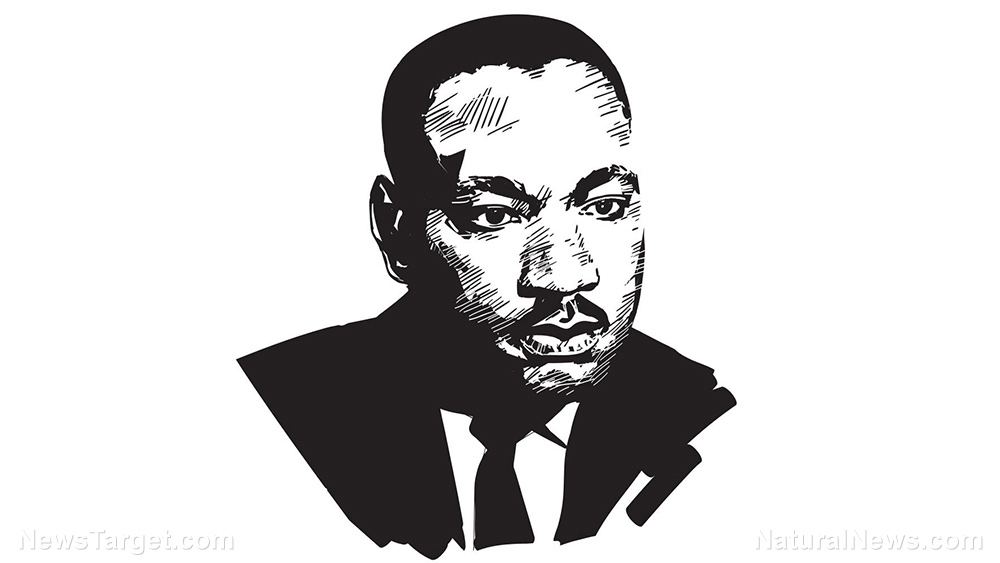 Parler
Parler Gab
Gab
'You can win an Oscar and never work again. You can have a career taken away immediately' - Actor and organiser SAG-AFTRA Members for CeasefireAcross the arts, a tiny group of executives and philanthropists wield near-complete authority, and this authority is used to freeze out artists critical of Israel both through their programming choices and their capacity to surveil, harass, and intimidate pro-Palestine art workers. A few days after the 7 October attacks on southern Israel, more than 700 industry executives and celebrities released an open letter calling on workers in the entertainment industry to "speak out forcefully against Hamas… as Israel takes the necessary steps to defend its citizens." Signatories included top executives at Warner Records, Electronic Arts, Disney, Atlantic Records, Paramount Pictures, National Geographic, and a host of others. The next month, in one of the highest-profile examples of corporate retribution for pro-Palestinian speech, actor Melissa Barrera was fired from her role in an upcoming "Scream" movie for social media posts criticising Israel's campaign in Gaza. The message from the top was clear: artists who speak out against Israel's actions will not work again. Since mid-2024, industry executives and their underlings have made good on that message, aggressively surveilling arts and entertainment workers, and quickly retaliating against any who criticise Israel, the workers said.
 Artists in film and television described a "blacklist culture" rife with firing and doxing.
One TV writer told MEE that leaked communications from a Hollywood PR company told staff to "look at social media" for pro-Palestine speech before hiring anyone.
The approach mirrors the Trump administration's stated policy to deny or rescind visas, particularly those of students, for pro-Palestine speech on their social media accounts.
In the world of dance, one East Coast-based dancer said that “there is a literal blacklist going around in a certain circles, and there's a doxing doc”.
Another actor said that management are known to engage in "collaborative efforts to get agencies to drop [artists]".
"They said that in one case: famously, a PR team emailed their team to drop any of their clients who criticise Israel."
Who carries out the orders?
Public relations teams and talent agencies are part of the middle layer of management that are often tasked with the direct work of surveilling and silencing artists who speak out against Israel's war on Gaza.
This middle layer includes casting and PR agencies, as well as the managers and agents whose function is ostensibly to represent and advocate for art workers as they build their careers.
For actors and writers, these agents and managers are essential for finding work, or even getting the interviews and auditions necessary to fight for a job.
Artists in film and television described a "blacklist culture" rife with firing and doxing.
One TV writer told MEE that leaked communications from a Hollywood PR company told staff to "look at social media" for pro-Palestine speech before hiring anyone.
The approach mirrors the Trump administration's stated policy to deny or rescind visas, particularly those of students, for pro-Palestine speech on their social media accounts.
In the world of dance, one East Coast-based dancer said that “there is a literal blacklist going around in a certain circles, and there's a doxing doc”.
Another actor said that management are known to engage in "collaborative efforts to get agencies to drop [artists]".
"They said that in one case: famously, a PR team emailed their team to drop any of their clients who criticise Israel."
Who carries out the orders?
Public relations teams and talent agencies are part of the middle layer of management that are often tasked with the direct work of surveilling and silencing artists who speak out against Israel's war on Gaza.
This middle layer includes casting and PR agencies, as well as the managers and agents whose function is ostensibly to represent and advocate for art workers as they build their careers.
For actors and writers, these agents and managers are essential for finding work, or even getting the interviews and auditions necessary to fight for a job.
'No one has to fire you, you can just never be hired again for unspoken reasons' - Dancers for PalestineMultiple actors MEE spoke with described managers and agents instructing them not to speak out against Israel's war, and many said they had lost representation since they began speaking up, largely on social media, in support of Palestine. A film and theatre composer said they were dropped by their talent agency shortly after they began posting about Palestine. Amin El Gamal, a member of SAG-AFTRA (the largest US union representing film, television, and radio actors) said that what makes this middle level of repression particularly effective is that it is "impossible to prove". El Gamal, who has landed TV roles on major networks, including HBO, Showtime, and Fox over the past decade and is also a member of the solidarity formation, Entertainment Labor for Palestine (EL4P), said: "They don't say [they dropped you] because of Palestine. They give other excuses [such as] ‘we’re not a good fit anymore'." As another Hollywood-based SAG-AFTRA member who works in both film and television put it, "If I'm being vocal and I lose my agent, they don't have to tell me it's because I'm being vocal.” Colin Buckingham, another New York-based actor who works primarily in theatre and television, described losing representation because of what their manager called the "sensitive nature" of his social media posts. This murky type of repression, where workers are quietly frozen out of the industry, points toward specific vulnerabilities that artists face. Dancers active in the solidarity group Dancers for Palestine (D4P) explained that in dance, as in film and television, "No one has to fire you, you can just never be hired again for unspoken reasons. There's cases where I didn't get jobs and I don't know if it's because I was blacklisted." An actor and organiser of the union solidarity group "SAG-AFTRA Members for Ceasefire" described a parallel sense of fear even for artists who achieve success in the industry. "You can win an Oscar and never work again. You can have a career taken away immediately," they said. MEE reached out to SAG-AFTRA for comment but did not receive a response by time of publication. Unions against solidarity Given the general sense of precarity in the industry, one might expect that workers in film and television, two of the most unionised sectors of the arts world, would rely on union leadership for defence from retaliation - especially after the massive displays of solidarity during the massive 2023 actors' and writers' strikes. Arts and entertainment unions tend to operate as partners with management in the industry, even when management’s programme involves suppressing worker voices. As a result, as one SAG member put it, "there hasn’t been any protection from the union… even when their own members are facing professional repercussions". Based on the testimony of workers MEE spoke with, union leaders in arts of entertainment often serve as junior partners in the work of silencing pro-Palestine artists. That’s not to say that union leaders have been silent. In the days after the Hamas-led 7 October attacks, union leaders in film and entertainment rushed to issue statements in support of Israel, but a year later and almost without exception, their solidarity has not extended to Palestinians - or to union members who oppose Israel’s devastating war on Gaza. El Gamal, the actor who also heads SAG-AFTRA's Middle East North Africa committee, expressed surprise and disappointment at union leaders’ intransigence. He described excitement during the general strikes at feeling "like the forefront of a solidarity movement against big tech and automation". A television writer and Writers Guild member described the "joy" and "feeling like family" that came from organising and picketing during the strikes, but said that since 7 October "all of that is out the window." Another SAG member echoed that notion saying "solidarity [within the Hollywood unions] has whittled away." "We’re in a video game strike right now, but I feel no interest in going to the picket lines. I'm not going to scab, but I really could care less. [Union leaders] have ignored the most vulnerable members of the union. We’ve really undermined the solidarity built in the historic strike." In this way, the silencing of pro-Palestinian voices serves a dual function for management, both silencing critics of Israel's war and weakening the broader labour movement in the industry. In some cases, union leaders have not only refused to make statements in support of Palestine or opposition to genocide but have actively suppressed pro-Palestine members of their own unions. One member of IATSE, the union representing behind-the-scenes entertainment workers from costume designers to animators, who had worked with union members to bring a pro-Palestine motion to the floor of a meeting, described experiencing "repression, bullying, misinformation, abuse of power" from their local union's elected leaders. They noted that it appeared pro-Israel union members had been granted access to the union's membership email list to spread misinformation about the genocide in Palestine and share "crazy Islamophobic content". IATSE members also reported that union leaders had used their access to member communications to "spread scare tactics" by telling members that if a union came out against genocide, it could jeopardise the entire local membership's ability to find work in the industry. MEE reached out to IATSE for comment but did not receive a response by time of publication. When unions collude with imperialism Multiple union members noted with bitterness that while SAG President Fran Drescher was a firebrand speaking out for unions during the strikes, she also reportedly had a history of raising money for the Israeli military. Hollywood unions have long supported Israeli occupation and the oppression of Palestinians, and US unions have offered support to Israel since the Balfour Declaration was issued in 1917. This is in keeping with the support that the AFL-CIO (the largest federation of US labour unions) has long shown for US imperialism writ large, from the war on Vietnam to the US-backed coup in Chile. Throughout the Cold War, America’s imperialist unionism ran parallel to Israel’s labour Zionism and the apartheid-era union movement in South Africa, which organised for a time under the slogan, “Workers of the World: Unite and Fight for a White South Africa”. In that context, the refusal of union leaders in the arts and entertainment industries to show solidarity with Palestine is not a failure of leadership so much as an expression of a long tradition in the American labour movement, wherein the concept of solidarity is often intertwined with a powerful belief in the settler colonial project. The result, as one SAG member said, is a “disgusting” version of unionism that’s “the definition of racism, really upholding the history of anti-Palestinian, anti-Muslim, anti-Arab racism propagated by our industry.” Along with this tradition of America-first, imperialist unionism, there’s a tradition specific to Hollywood of unions working with management and the government to suppress anti-imperialist voices. Ronald Reagan actually got his start in politics as the SAG president in the 1940s. He used his role as an elected union leader to get artists associated with communism and radical politics in general blacklisted and silenced, serving as a confidential FBI informant and naming names before a congressional committee on communist activity. At every level, from the CEOs at the top to union leaders who are supposed to represent their workers, these industries can pivot from marketing their newest sitcom to silencing critics of Israel without altering their day-to-day operations. The suppression of pro-Palestine voices in arts and entertainment is - while unprecedented in its intensity - as one WGA member put it, “to be a propaganda tool for imperialism even beyond Zionism”. Groundswell of solidarity Despite all that, and despite efforts at every level of the industry to manufacture silence around Israel’s genocide, every worker Middle East Eye spoke to is organising in support of Palestine, either within their union or with other artists. Since the winter, theatre workers like myself have organised through Theater Workers for Ceasefire (TW4C) to build support for the Palestinian Campaign for the Academic and Cultural Boycott of Israel (PACBI), the cultural wing of the BDS campaign. Since September, those efforts have borne fruit as 27 theatres and theatre organisations from around the US have endorsed the PACBI campaign, committing to boycott Israeli institutions that are complicit in the ongoing war and what organisers call "Israeli apartheid". The wave of PACBI endorsements was unprecedented in US theatre over the 20 years of the BDS campaign, though one fellow TW4C organiser cautioned that while “there is momentum” for Palestine solidarity organising in the arts, it still has to face the obstacle of pro-Israel board members and donors “cut off” from the actual work of arts organisations, but who can wield influence to “hold theatres hostage”. Organisers with Dancers for Palestine (D4P) say they face similar challenges. In response, they’ve often taken street actions and demonstrations to bring attention to Israel’s longstanding practice of using the arts - and dance, in particular, to “artwash”. In late September, D4P organised a demonstration outside of New York’s 92Y, which was hosting Israel’s Batsheva dance company, which has long served as cultural ambassadors for Israel.
 Pro-Israel sentiment is particularly powerful in the dance world, one of the D4P members explained, where there’s “a long history connecting Zionism and the development of Israeli modern dance”.
They noted that this history goes back to the Cold War, when the US “was using many types of art, including modern dance, for propaganda tours, sending modern dance groups to Israel”.
One of these tours resulted in renowned choreographer Martha Graham going to Israel and founding Batsheva, one of Israel’s “main cultural exports”. For this reason, the D4P organisers say it’s critical to maintain a visible presence at dance events that are designed to normalise this strain of Israeli culture for American audiences.
In film and television, SAG-AFTRA Members for Ceasefire and IATSE for Palestine have worked to push pro-Palestine statements in their unions, and to have a presence at pro-Palestine demonstrations and events.
Getting union leaders to even acknowledge their concerns has been, they said, maddeningly difficult, but they are organising to apply pressure while working behind the scenes to build support for Palestine among colleagues in the industry.
One WGA member said he feels it’s important to keep finding ways to build support for Palestine, sometimes just in one-on-one conversation, even if “all that’s doing is throwing sand in the gears”.
One way that filmmakers have tried to throw "sand in the gears" is by creating space for alternatives to Zionist-funded, pro-Israel media.
In New York, in protest of the New York Film Festival’s ties to pro-Israel donors, a group of filmworkers organised the first ever New York Counter Film Festival (NYCFF). The idea, one of the organisers explain, is that rather than just ask filmmakers to withdraw their work from the festival in protest, NYCFF would offer them alternate venues to show their work.
They also approached critics and film writers, asking them not to cover New York Film Festival. NYCFF managed to get more than 20 critics and writers to pledge not to cover or publicise the New York Film Festival.
Pro-Israel sentiment is particularly powerful in the dance world, one of the D4P members explained, where there’s “a long history connecting Zionism and the development of Israeli modern dance”.
They noted that this history goes back to the Cold War, when the US “was using many types of art, including modern dance, for propaganda tours, sending modern dance groups to Israel”.
One of these tours resulted in renowned choreographer Martha Graham going to Israel and founding Batsheva, one of Israel’s “main cultural exports”. For this reason, the D4P organisers say it’s critical to maintain a visible presence at dance events that are designed to normalise this strain of Israeli culture for American audiences.
In film and television, SAG-AFTRA Members for Ceasefire and IATSE for Palestine have worked to push pro-Palestine statements in their unions, and to have a presence at pro-Palestine demonstrations and events.
Getting union leaders to even acknowledge their concerns has been, they said, maddeningly difficult, but they are organising to apply pressure while working behind the scenes to build support for Palestine among colleagues in the industry.
One WGA member said he feels it’s important to keep finding ways to build support for Palestine, sometimes just in one-on-one conversation, even if “all that’s doing is throwing sand in the gears”.
One way that filmmakers have tried to throw "sand in the gears" is by creating space for alternatives to Zionist-funded, pro-Israel media.
In New York, in protest of the New York Film Festival’s ties to pro-Israel donors, a group of filmworkers organised the first ever New York Counter Film Festival (NYCFF). The idea, one of the organisers explain, is that rather than just ask filmmakers to withdraw their work from the festival in protest, NYCFF would offer them alternate venues to show their work.
They also approached critics and film writers, asking them not to cover New York Film Festival. NYCFF managed to get more than 20 critics and writers to pledge not to cover or publicise the New York Film Festival.
'I auditioned for lots of terroristy parts. I’m kind of disgusted with myself, but I felt like there was not a career for me unless I accepted a part like this' - Amin El Gamal, actorThe founders of Watermelon Pictures, a film distribution company focused on increasing representation of Muslim and Southwest Asian and North Africa (Swana) stories, see their mission as providing another alternative to an industry and culture where Muslim and Swana characters are often limited to stereotype and caricature. One of these founders, Badie Ali, said that while for years, the American arts and entertainment industries “have done a wonderful job dehumanising people from [the Middle East]”, Watermelon Pictures seeks to produce stories that normalise depictions of these minorities. His goal, he said, is to help audiences see their connection to the people of Palestine and the broader region. “We have to take control of the narrative,” he said. “Just understanding the difficulty of just getting water [in Palestine]…imagine going to that extent just to get your kids food.” El Gamal, echoed Ali’s message about the importance of normalisation: both Hollywood’s normalisation of anti-Palestinian racism and the need to use art to normalise Muslim and Swana stories. He said that when he first got started as an actor, he was more complacent. "I auditioned for lots of terroristy parts. I’m kind of disgusted with myself, but I felt like there was not a career for me unless I accepted a part like this," El Gamal said. He noted that Hollywood’s normalisation of Islamophobia and racism doesn't happen by accident, citing the long-established partnerships between the CIA, Department of Defense, and Hollywood production companies. With that history in mind then, the artists organising for Palestine across their industries aren’t just combatting repressive management. They’re standing up to the propaganda wing of America’s imperialist project, a project which is itself designed to silence any who oppose it. Like the broader movement for a free Palestine, this movement of artists for Palestine continues to grow despite the obstacles in its way. Read more at: MiddleEastEye.net
Netanyahu apologizes for “accidental” strike on Catholic church in Gaza – it was DELIBERATE
By Ramon Tomey // Share
UN accuses Israel of starving Gaza civilians as hunger deaths mount
By Belle Carter // Share
Israeli tanks enter Deir al-Balah: A new phase in the Gaza conflict
By Zoey Sky // Share
Mexico mandates biometric digital ID system in major overhaul of national identification
By Laura Harris // Share
7 Natural options to relieve cluster headaches
By News Editors // Share
Governments continue to obscure COVID-19 vaccine data amid rising concerns over excess deaths
By patricklewis // Share
Tech giant Microsoft backs EXTINCTION with its support of carbon capture programs
By ramontomeydw // Share
Germany to resume arms exports to Israel despite repeated ceasefire violations
By isabelle // Share










